Wargaming is a big hobby with many diverse factions and perspectives: striking a balance that pleases everyone can be truly challenging! We like to think what sets Wargames, Soldiers & Strategy apart from other historical wargaming magazines is its focus on having fun, no matter what kind of wargamer you are or what your background is. WS&S is a light-hearted publication, that pays particular attention to games themselves and how to play them: it doesn’t get bogged down in lengthy historical expositions or recycle content you can read yourself in any history book. While popular periods like WWII, the Napoleonic era, and the ancient world get frequent coverage, we also try to feature the unexpected, with articles on spies, monsters and gangsters to name but a few.
WARGAMES, SOLDIERS & STRATEGY
Editorial
MINIATURE REVIEWS • A look at some of the newest miniatures, terrain pieces, and more from across the wargaming world.
UP FRONT PUBLIC WARGAMING • I am on record as being a vociferous advocate for the promotion of an outward-looking, welcoming, and diverse hobby. Over the years I have been writing this column I have often stressed the importance of encouraging newcomers who have wandered, often unknowingly, into the wonderful but sometimes slightly wacky world of wargaming. It is undoubtedly true that if the hobby is to survive and flourish we need new blood coming in, if only simply to replace the, sadly, natural diminishment caused by Tempus Fugit.
THE RAID ON MAN • The cold waters that flowed across the North Sea and the north of Scotland through the Orkneys and Shetlands and down via the Western Isles to Man and the Irish coast were a highway for the Norwegian Vikings. They came at first to raid and then to settle in the islands of the region and in Ireland itself. Eventually the Viking outposts grew into substantial communities, and at its height the Kingdom of the Isles could field 10,000 warriors and the ships to support them.
PASSAGE OF THE DUORO • On the morning of 12 May 1809 the men of the 3rd Foot, the Buffs, made their mark on history when they crossed the River Duoro, surprising the French, who had considered such a crossing impossible, and thereby achieving a brilliant coup de main. So unexpected was their crossing that it flung Marshal Soult’s 11,000-strong army into disarray, ultimately leading to the defeat of the second French invasion of Portugal.
REFIGHTING POLTAVA • The Battle of Poltava is the most famous and decisive battle in the Great Northern War. In the early campaigns of the war up to 1707, the Swedes had defeated a coalition of enemies with their main force while restricting Russia’s advances with secondary forces. In 1708, the Swedes invaded Russia with some success, but the invasion ran into problems and by 1709 the two armies were in the area of the Ukrainian town of Poltava.
ARNHEM AT ARNHEM • “From which direction did you approach the Museum?” It so happens that the Oosterbeek Airborne Museum sits in a park area along a main road and visitors can only approach from the west or east. Whichever direction they had come from, they would have driven, in a manner of speaking, across one of our tables and would certainly have passed some of the buildings on display in this room.
IMPROVISATION IN WARFARE • Sometimes – often, maybe – we have a vision of historical conflict as something that’s rather neat and ordered. We imagine right-angled blocks of sarissa-armed men marching in step toward a patiently waiting foe, chiselled cavalry troopers charging down a dusty defile with pennants streaming in glorious John Ford Technicolor, or grizzled USMC sergeants showing the green replacements that “everything’ll be fine if you jus’ stick with me, kid…”
SLAVE SOLDIERS • At the end of the second century BC, Roman resources were stretched thin. The long-running war...

 WSS 139
WSS 139
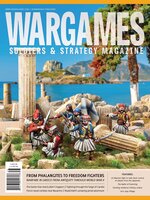 WSS 138
WSS 138
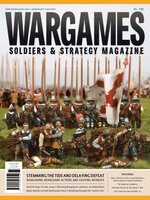 WSS 137
WSS 137
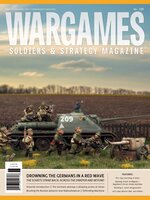 WSS 136
WSS 136
 WSS 135
WSS 135
 WSS 134
WSS 134
 WSS 133
WSS 133
 WSS 132
WSS 132
 WSS 131
WSS 131
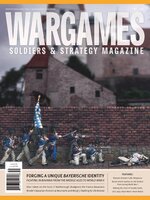 WSS 130
WSS 130
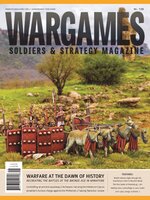 WSS 129
WSS 129
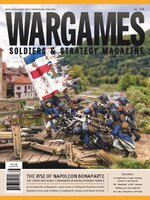 WSS 128
WSS 128
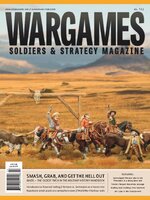 WSS 127
WSS 127
 WSS 126
WSS 126
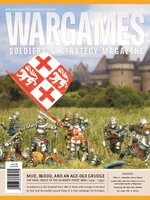 WSS 125
WSS 125
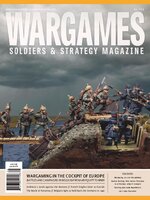 WSS 124
WSS 124
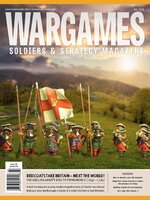 WSS 123
WSS 123
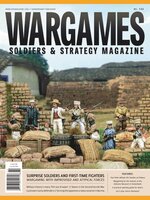 WSS 122
WSS 122
 WSS 121
WSS 121